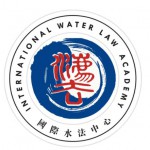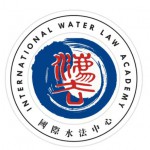Cross-Border Cooperation: A Rare Case of Constructive EU-Russia Engagement


The goal of this webinar is to build awareness of cross-border cooperation as a rare case of constructive engagement between the European Union (EU) and Russia against the background of a bilateral relationship that resides in deep crisis. The aim is to share best practices to better understand how EU-Russia cross-border cooperation works on the ground and what drives its success.
In the past few years, the relations between the European Union and Russia have experienced a major decline and resulted in a complex political situation with low trust from both sides. Constructive dialogue tends to overshadowed by official communication, which is often dominated by mutual accusations, yes-no arguments and backed up by the media narratives taken over by public opinion.[1]
Currently, the EU’s policy towards Russia is based on five guiding principles. One of them is ‘selective engagement’, which implies that cooperation with Russia remains possible on certain foreign policy issues of common interest.[2] Among other things, this approach enables to maintain practical cooperation in the format of the Northern Dimension, Cross-Border Cooperation (CBC) Programmes, as well as in the framework of regional inter-governmental organisations (e.g. the Council of the Baltic Sea States, the Barents Euro-Arctic Council). All in all, the ‘wider’ northern Europe region (which includes several EU Member States and Russia) has resulted in a number of institutionalised fora for international, multilateral, and intergovernmental cross-border cooperation. This approach could be seen as a good example for collaborations, contributing to political stability and functional cooperation between state and non-state actors.[3]
Cross-border cooperation with Russia is also enabled by the EU under the fifth principle of the EU’s ‘five principles’. The fifth principle spells out the need to support Russian civil society and engage in people-to-people contacts.[4] In a context of strained diplomatic and political relations, the EU has invested significantly in strengthening societal ties through student exchanges, civil society cooperation, research and cross-border cooperation. CBC programmes play an important role in EU-Russia regional cooperation and provide added value for neighbouring regions. The current CBC programmes 2014-2020 will soon be replaced by a new generation of programmes in the framework of the European Neighbourhood Policy (ENP) and the Cohesion Policy for the period 2021-2027. It is expected that the programmes will also contribute to joint priorities and increase focus on Arctic cooperation.[5]
[1] Franco, 2018, p. 15
[2] Bossuyt & Van Elsuwege, 2021.
[3] Heininen, 2017, p. 439
[4] Bossuyt & Van Elsuwege, 2021.
[5] Joint paper on Interreg NEXT Strategic Programming 2021 – 2027, p. 16
Key Questions
The webinar is aimed at answering several questions in relation to the role of cross-border cooperation for the EU-Russia relations, as well as its challenges and opportunities. The main aim of the webinar is to build awareness of EU-Russia cross-border cooperation as a rare case of constructive engagement between the EU and Russia against the background of a bilateral relationship that resides in deep crisis. In doing so, the discussion will exemplify some achievements and good practices of EU-Russia cross-border cooperation, while discussing which lessons can be learnt from these cases for EU-Russia cooperation in other fields. The following questions will be addressed:
- What role does cross-border cooperation play in EU-Russia relations?
- How has cooperation in this field evolved?
- How can we explain that cross-border cooperation is still in place despite strong tensions between the EU and Russia?
- What are the specific CBC ENI programmes with Russia?
- What are the examples of successful cross-border projects?
- Which lessons can we learn from the positive examples of EU-Russia cross-border cooperation for EU-Russia relations more generally? What limitations does it have to act as a best practice?
- What can be expected from Interreg NEXT (Neighbourhood External) programming 2021-2027?

Audience
The webinar will be relevant for both an academic and a practitioner audience. In particular, it will be of interest to scholars and experts working on EU-Russia relations, regional cooperation, the European Neighbourhood Policy, as well as to practitioners and policymakers dealing with these issues.
Provisional Programme
10:00-10:05
Welcome Remarks
10.05-11.00
Keynote Lecture: EU-Russia Cross-Border Cooperation: Evolution in a Challenging Environment
- Alexander Sergunin
- Professor, Department of International Relations, School of International Relations, St. Petersburg State University
11:15-12:45
Panel 1: Best Practises and Concrete Examples of EU-Russia Cross-Border Cooperation
- Elizaveta Druzhinina
- Project Manager, Culture Open: Creating Culture Together (Karelia ENI CBC)
- Jukka-Pekka Bergman
- Programme Manager, South-East Finland – Russia CBC Programme
- Simona Pohlová
- ENI CBC Team leader, European Commission, DG Regional and Urban Policy
12:45-13:30
Lunch Break
13:30-15:00
Which Lessons for EU-Russia Relations?
- Andrey Makarychev
- Professor, Johan Skytte Institute of Political Studies, University of Tartu
- Marc Franco
- Senior Associate Fellow, EGMONT Royal Institute for International Relations
- Krzysztof Kirdzik
- Head of Russian Federation Section, Eastern Department, Ministry of Foreign Affairs of the Republic of Poland
Moderators

Fabienne Bossuyt
Professorial Fellow, UNU-CRIS
Assistant Professor at the Centre for EU Studies and Co-Director of the Russia Platform, Ghent University (Belgium)
Selected publications:
- Bossuyt, F. & Van Elsuwege, P. (ed.) (2021). Principled Pragmatism in Practice. The EU’s Policy towards Russia after Crimea. Leiden: Brill.
- Bossuyt, F., and I. Bolgova. 2020. Connecting Eurasia: Is Cooperation between Russia, China, and the EU in Central Asia possible? In Regional Integration and Future Cooperation Initiatives in the Eurasian Economic Union. Ch. 13, ed. M. Lagutina, 234–250.
Research interests:
- The EU’s foreign policy and in particular the EU’s relations with the post-Soviet space; cooperation between the EU, Russia and China in Central Asia

Domenico Valenza
PhD Fellow; UNU-CRIS, Ghent University (Belgium)
Selected publications:
- Valenza D. (2021). A Crisis or a Turning Point? EU Cultural Relations with Russia after Crimea in Principled Pragmatism in Practice. The EU’s Policy towards Russia after Crimea. Leiden: Brill.
- Valenza D. & Bossuyt, F. (2019). A Two-Way Challenge: Enhancing EU Cultural Cooperation with Russia. CEPS Policy Brief.
Research interests:
- EU external action and neighborhood policy; EU-Russia relations, Russia’s foreign policy.
References:
- European Parliament (2018). Briefing. The EU's Russia policy. Five guiding principles. Retrieved from https://www.europarl.europa.eu/RegData/etudes/BRIE/2018/614698/EPRS_BRI(2018)614698_EN.pdf
- Franco, M. (2018). Deadlock of EU-Russia Relations. What next? In O. Potemkina (Ed.), The EU-Russia: the way out or the way down? (pp. 14-19). Moscow: Institute of Europe, Russian Academy of Sciences; Egmont – The Royal Institute for International Relations. Retrieved from https://www.egmontinstitute.be/the-eu-russia-the-way-out-or-the-way-down/
- Heininen, L. (2017). The Arctic, Baltic, and North-Atlantic ‘cooperative regions’ in ‘wider Northern Europe’: similarities and differences. Journal of Baltic studies, 48(4), 435-450.
- Joint paper on Interreg NEXT Strategic Programming 2021 – 2027. Interreg NEXT programmes on EU external borders with the neighbouring partner countries (20 January 2020). Retrieved from http://kokoushallinta.ekliitto.fi/djulkaisu/kokous/2020293-5-1.PDF
- Bossuyt, F. & Van Elsuwege, P. (ed.) (2021). Principled Pragmatism in Practice. The EU’s Policy towards Russia after Crimea. Leiden: Brill.
Upcoming Events
Similar Events
No events found.



